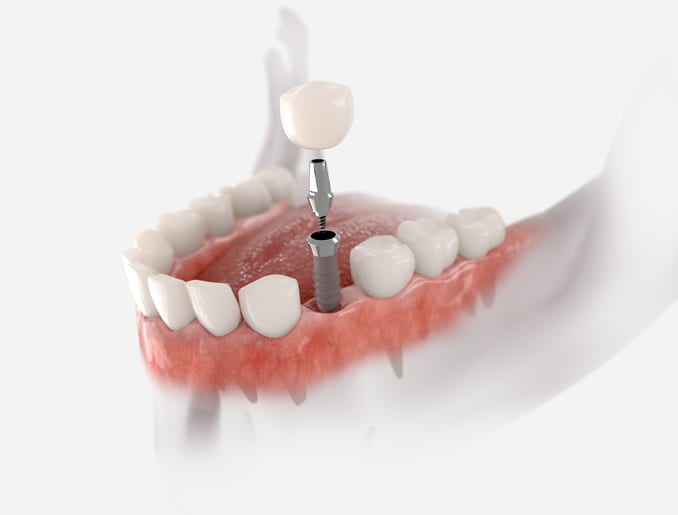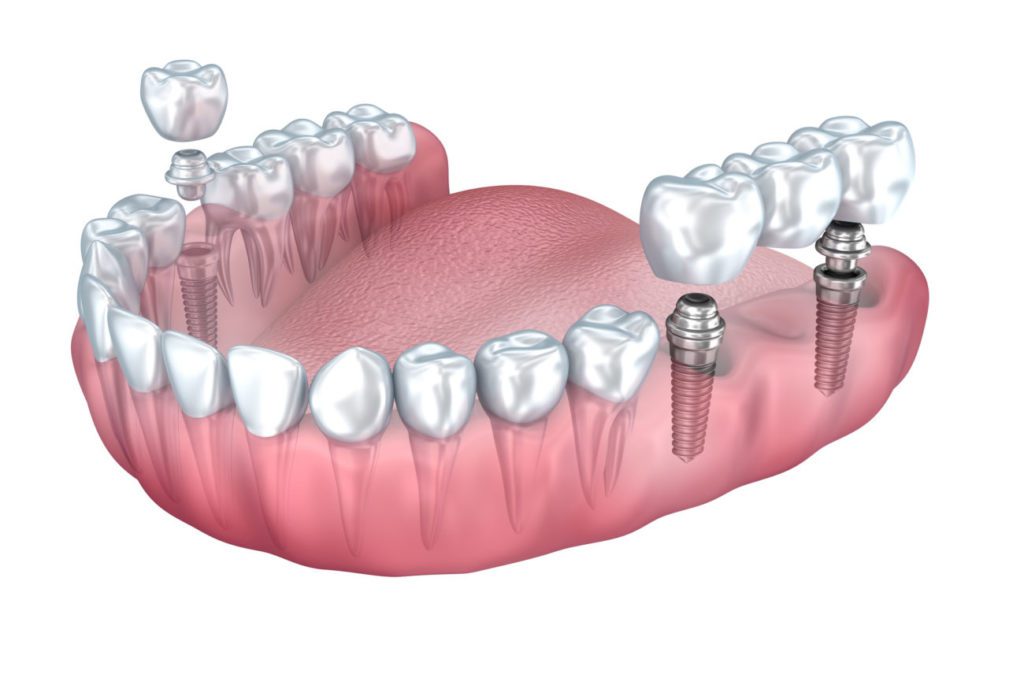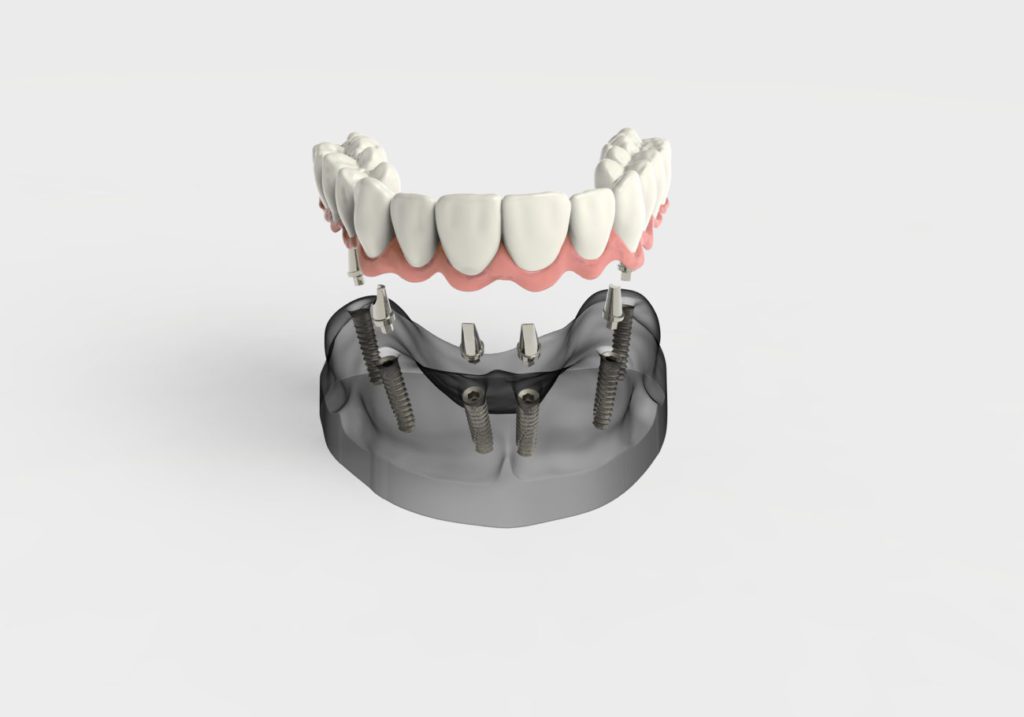Having one missing tooth might not seem like a huge deal, but having multiple missing teeth can be overwhelming. Common causes of missing teeth include injury, gum disease, and tooth decay.
Many missing or damaged teeth can harm your oral health, overall health, and self-esteem. To prevent further damage and improve your smile, it’s important to replace missing teeth as soon as possible. Dr. Andrey Doroshenko, a Prosthodontist in Baltimore, offers many options for replacing missing teeth.
Dentists usually replace missing teeth using a partial denture or full denture. Dr. Doroshenko will recommend dental implants if you qualify because they replace both the tooth and the root.
Types of Dental Implants for Multiple Missing Teeth
The type of dental implant Dr. Doroshenko uses depends on where and how many teeth are missing. The right number of implants will support the prosthetic for strength and stability. Here are the types of implants for multiple missing teeth.
Remember, you need enough bone density in your jaw to qualify. If you have bone loss, our dentists will fix that first. A bone grafting procedure is a part of the surgical phase of a dental implant treatment plan.
Implant-supported Crown: If You Are Missing Many Nonconsecutive Teeth
Implant-supported crowns replace a few missing teeth that are not next to each other. Dr. Doroshenko will recommend simply replacing each missing tooth with an implant-supported dental crown.
Our dentist will surgically place the implant post in the jaw bone at each location. Then, we will wait for your jawbone to fuse with the post. After your mouth heals, Dr. Doroshenko will attach a dental crown to each implant post to complete your treatment.

The implant-supported crown has three components:
- The implant post that replaces the natural tooth root.
- The abutment that attaches the crown to the post.
- The metal or porcelain crown that covers the implant.
In some cases, a dentist can use an implant-supported crown in place of a traditional dental bridge. This can work for patients who have lost more teeth because it provides support to neighboring teeth. The implant-supported crown can create space for prosthetic dentures down the road as well.
Implant-supported Dental Bridge: If You Are Missing Multiple Consecutive Teeth
If you have a section or row of missing teeth, then Dr. Doroshenko will replace them with an implant-supported dental bridge. The bridge will contain all the replacement teeth in one piece. Here, our dentist places two implant posts, one on each side of the gap. He will let your mouth heal and fuse with them, then securely attach the dental bridge to the implant posts.

Implant-supported Dentures: If You Are Missing an Entire Arch of Teeth
Millions of people in the United States are missing all their teeth. The one solution that will deliver a good quality of life is dental implant-supported dentures. We also call this procedure the All-on-Four Dental Implant Method. All-on-4 dental implants replace a full arch of teeth using a fixed prosthesis.
Our dentists can secure dentures to as little as four surgically placed dental implant posts. You must be missing all of your teeth for this treatment.

Implant-supported dentures consist of two parts. The first is an implant that your periodontist or oral surgeon surgically places in the jawbone. The second is a framework that holds artificial teeth in place in your mouth. Your dentist can remove implant dentures if necessary, but permanently anchor to your jawbone.
The implant posts protect against bone deterioration and helps maintain natural facial contours. This means that you won’t have to worry about facial sagging that comes with missing teeth.
Can implants be placed even if I’ve been missing teeth for several years?
Yes, we can still place implants years after tooth loss, but the jawbone may need to be evaluated first. Long-term tooth loss can lead to bone shrinkage, which may require a bone graft before implant placement. If enough healthy bone remains, implants can be placed without additional procedures. Dr. Doroshenko will assess your bone and oral health to create the right treatment plan.
What are the signs I might need a full arch dental implant solution?
If you’re missing most or all of your teeth in one arch, or your existing dentures are loose and uncomfortable, you may be a good candidate. Other signs include difficulty chewing, speech problems, or failing dental work across multiple teeth. Full arch implants provide stability, improve function, and help preserve your jawbone. A consultation will determine if this long-term solution is right for you.
What’s the difference between an implant crown and a traditional crown?
A traditional crown covers a natural tooth that’s been shaped or treated, such as after a root canal. An implant crown, however, attaches to a dental implant that replaces a missing tooth root. The implant crown doesn’t rely on your natural tooth structure, making it ideal for fully replacing lost teeth. Both crowns restore function and appearance, but are supported differently.
Can dental implants be used with existing partial dentures?
Yes, in many cases, we can add implants to support or stabilize an existing partial denture. Implants can help improve fit, prevent shifting, and reduce pressure on the gums. Sometimes, your current denture can be modified to connect with the new implants. Dr. Lazer will evaluate whether your partial is suitable for this upgrade or a new one is needed.
How many implants are needed for a full upper or lower arch?
Most full-arch implant solutions use 4 to 6 implants to support a fixed denture or bridge. The number depends on bone quality, arch size, and the type of restoration used. Techniques like All-on-4 use just four implants in strategic positions. Dr. Doroshenko will determine the best number based on your anatomy and treatment goals.
Which Option Is Best For You?
Make an appointment with Dr. Doroshenko online, or call (410) 697-6290. Learn more about which option will work best for you at his Owings Mills dental office. Not everyone will qualify for dental implants. You must be in good overall health and have an adequate amount of bone in your jaw to support the implants.
We only recommend dental implants for adults who have a fully developed jaw bone that is in good condition. Contrary to what people believe, being too old is not a deterrent to getting dental implants. Furthermore, Dr. Doroshenko may recommend certain treatments first, so you can qualify for dental implants. This may include a bone graft, gum disease treatment, or tooth extractions.
To learn more about our Owings Mills implant dentistry, see:
